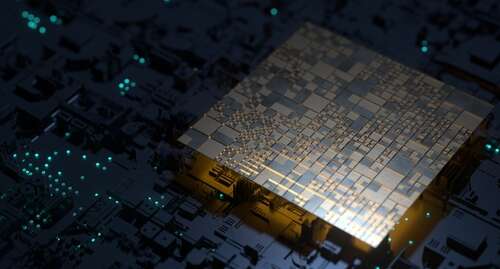
Microsoft and Quantinuum claim to have achieved a significant breakthrough in quantum error correction, making quantum computing more reliable. The partnership announced on Wednesday that they have demonstrated the “most reliable logical qubits on record“, which “signifies a major achievement for the entire quantum ecosystem”. Reliability of qubits in quantum computing research has hitherto hindered progress of researchers in the field.
Logical qubits are created through combining multiple physical qubits to protect against errors while processing longer quantum computations. Qubits are highly sensitive and prone to producing errors if they are exposed to even the most minute disturbances in environmental conditions. Attempts to combat this involve quantum experts building more physical qubits than required to get more reliable and useful qubits with the help of error correction techniques.
Microsoft created an algorithm with error diagnostics and correction which was applied to Quantinuum’s physical qubits, producing four reliable qubits out of thirty. Jason Zander, Microsoft’s executive VP for strategic missions and technologies, claimed this is the best ratio of reliable qubits from a quantum chip that has ever been shown.

Making qubits reliable and scalable
The breakthrough marks the latest achievement in the race to unleash the power of quantum computing. Tech giants Microsoft, Google and IBM are competing with each other and nation states to create computers that can process data at much faster speeds than traditional silicon-based computers. Quantum machines can perform scientific calculations at speeds far beyond conventional computing, which can be used in complex problem solving such as global warming or science, to improve predictive analysis and pattern recognition, for example.
Since 2019, Microsoft has been working with Quantinuum, the quantum computing company formed by the merger of Cambridge Quantum and Honeywell Quantum Solutions.
“We ran more than 14,000 individual experiments without a single error. Furthermore, we demonstrated more reliable quantum computation by performing error diagnostics and corrections on logical qubits without destroying them,” said Zander. “This finally moves us out of the current noisy intermediate-scale quantum (NISQ) level to Level 2 Resilient quantum computing.”
Reliable quantum is more commercially viable
Microsoft said the “advanced capabilities based on these logical qubits” will be released to its cloud computing customers, “in private preview for Azure Quantum Elements” in the coming months.
Ilyas Khan, chief product officer of Quantinuum said “the current view is that we have lopped at least two years” off the time needed to reach 100 reliable qubits, the cited figure set to beat a conventional supercomputer. Neither organisation, however, were able to state how many years they would need to achieve this.
Dr Travis Humble, director of Quantum Science Center at Oak Ridge National Laboratory, said the progress made by Microsoft and Quantinuum is crucial for the continued practical application of quantum. “Breakthroughs in quantum error correction and fault tolerance are important for realising the long-term value of quantum computing for scientific discovery and energy security. Results like these enable continued development of quantum computing systems for research and development.”






